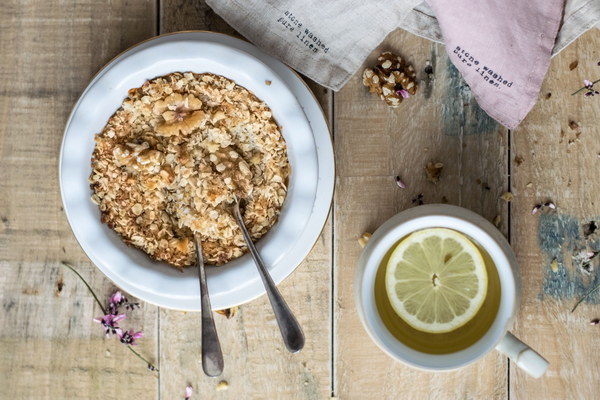Is Eating Wheat Beneficial for Your Babys Spleen and Stomach Health
Introduction:
The question of whether eating wheat is beneficial for a baby's spleen and stomach health has been widely debated among parents and healthcare professionals. In this article, we will explore the relationship between wheat consumption and the well-being of a baby's digestive system, providing insights on how to incorporate wheat into your baby's diet in a way that promotes optimal health.
The Importance of Spleen and Stomach Health in Babies:
The spleen and stomach are crucial organs in a baby's digestive system, playing a vital role in nutrient absorption, digestion, and immune function. A healthy spleen and stomach contribute to the overall well-being of a baby, ensuring proper growth, development, and resistance to diseases.
Wheat: A Nutritious Grain with Potential Benefits:
Wheat is a staple food in many cultures and provides a variety of nutrients that are essential for a baby's growth and development. It is rich in carbohydrates, proteins, vitamins, and minerals, which are crucial for energy production, muscle development, and brain function.
However, wheat also contains gluten, a protein that can be problematic for some babies with gluten sensitivity or celiac disease. In such cases, it is important to consult with a pediatrician before introducing wheat into your baby's diet.
Is Eating Wheat Beneficial for Your Baby's Spleen and Stomach Health?
1. Gluten-Free Wheat Varieties:
For babies without gluten sensitivity or celiac disease, consuming gluten-free wheat varieties, such as white flour or whole wheat flour, can be beneficial for their spleen and stomach health. These grains are easier to digest and can provide essential nutrients without causing discomfort or digestive issues.
2. Proper Timing and Gradual Introduction:
Introducing wheat to your baby's diet should be done gradually and at the appropriate age. The American Academy of Pediatrics recommends introducing wheat-based foods around 6 months of age, after your baby has been introduced to other solid foods. This allows the baby's digestive system to develop and adapt to the new food.
3. Cooked and Softened Wheat Products:
To ensure easy digestion, it is important to cook and soften wheat products before serving them to your baby. This can be achieved by boiling, steaming, or pureeing the wheat into a soft, smooth texture. Softened wheat products, such as wheat noodles, bread, and pasta, can be a great source of nutrients for your baby.

4. Balanced Diet:
Including wheat in your baby's diet is beneficial when it is part of a balanced and varied diet. Ensure that your baby consumes a variety of fruits, vegetables, meats, and other grains to provide a wide range of nutrients. This will help support the overall health of the spleen and stomach.
5. Monitoring for Any Allergic Reactions:
While wheat is generally considered safe for most babies, it is crucial to monitor for any allergic reactions. If you notice symptoms such as diarrhea, vomiting, or a rash after introducing wheat into your baby's diet, consult with a pediatrician to determine the cause and whether wheat should be eliminated from the diet.
Conclusion:
In conclusion, consuming wheat can be beneficial for your baby's spleen and stomach health when introduced properly and in moderation. By choosing gluten-free wheat varieties, ensuring proper cooking and softening techniques, and maintaining a balanced diet, you can provide your baby with the necessary nutrients while minimizing the risk of discomfort or digestive issues. Always consult with a pediatrician before making significant changes to your baby's diet.









